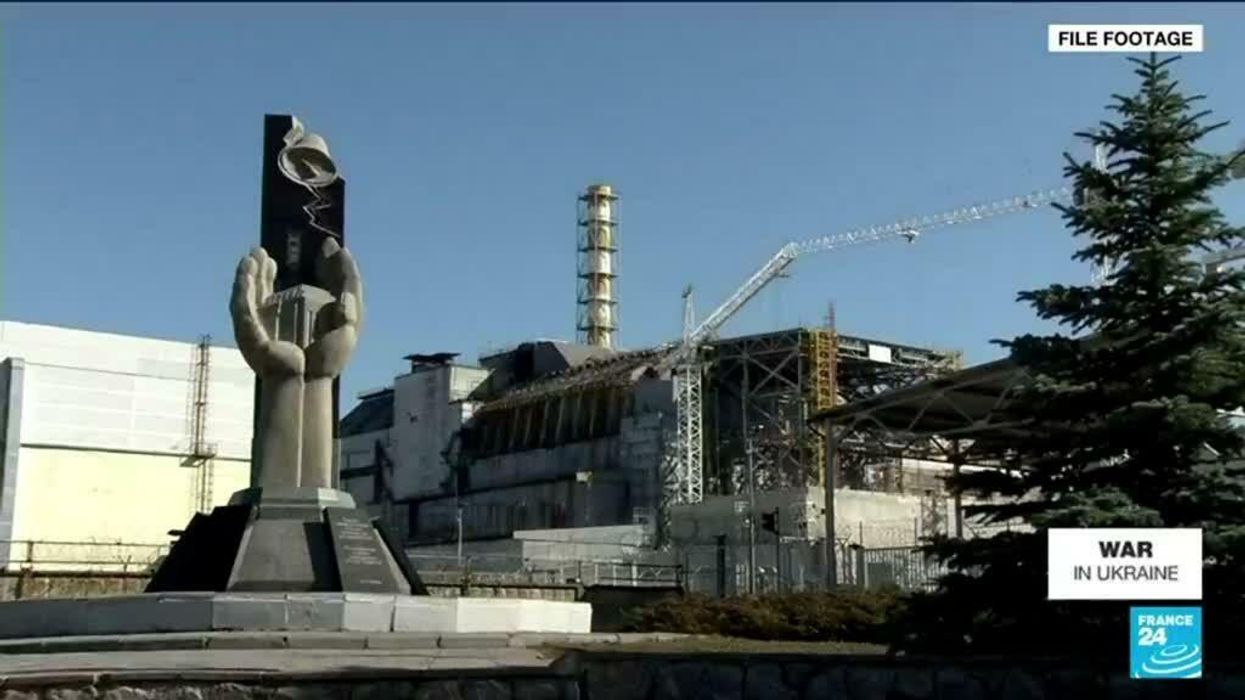Russian forces have disconnected the Chernobyl nuclear plant from the grid, prompting fears over radiation leaks.
Ukraine's state-run nuclear company Energoatom has said radioactive substances could be released into the air if power is not restored. However, the fix required has been impossible due to ongoing fighting.
"They need constant cooling. Which is possible only if there is electricity. If it is not there, the pumps will not cool. As a result, the temperature in the holding pools will increase," the agency said.
"After that evaporation will occur, that will lead to nuclear discharge. The wind can transfer the radioactive cloud to other regions of Ukraine, Belarus, Russia and Europe. In addition, there is no ventilation inside the facility.
"All personnel there will receive a dangerous dose of radiation. The fire extinguishing system also does not work, and this is a huge risk of fire caused by shelling. The fight still goes on making it impossible to carry out repairs and restore power."
Dmytro Kuleba, Ukraine's foreign minister, confirmed the only grid supplying Chernobyl had been damaged, resulting in the plant losing "all electric supply".
"I call on the international community to urgently demand Russia to cease fire and allow repair units to restore power supply," he tweeted.
Sign up to our free Indy100 weekly newsletter
"Reserve diesel generators have a 48-hour capacity to power the Chernobyl NPP. After that, cooling systems of the storage facility for spent nuclear fuel will stop, making radiation leaks imminent. Putin's barbaric war puts entire Europe in danger. He must stop it immediately!"
Considered the worst nuclear disaster in history, Chernobyl's fourth reactor exploded in April 1986 during a flawed safety test. It resulted in clouds of radiation spreading across much of Europe, not to mention the considerable cost and casualties.
Two Chernobyl plant workers died on the night, along with a further 28 who suffered from acute radiation syndrome. However, many believe the horrifying true figure is in the thousands.
But what would happen if there were to be a second Chernobyl explosion?
"If there were a second hydrothermal explosion, a water-gas shift chemical reaction could have converted water into hydrogen—very dangerous in certain quantities—that a substantial portion of structural and remaining reactor material could have been torn up," one research fellow speculated.
In the very unlikely scenario that all four reactors exploded simultaneously, it would resort to chaos.
Not only in terms of the fallout but ecologically and politically – and radioactive would have completely reshaped life over central and Eastern Europe virtually overnight.
The Independent has a proud history of campaigning for the rights of the most vulnerable, and we first ran our Refugees Welcome campaign during the war in Syria in 2015. Now, as we renew our campaign and launch this petition in the wake of the unfolding Ukrainian crisis, we are calling on the government to go further and faster to ensure help is delivered.
- To find out more about our Refugees Welcome campaign, click here.
- To sign the petition click here.
- If you would like to donate then please click here for our GoFundMe page.
Have your say in our news democracy. Click the upvote icon at the top of the page to help raise this article through the indy100 rankings.














